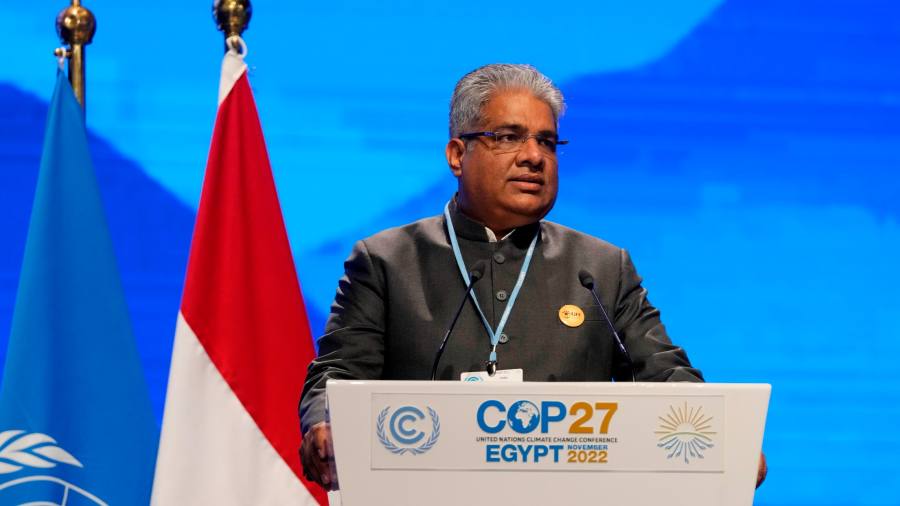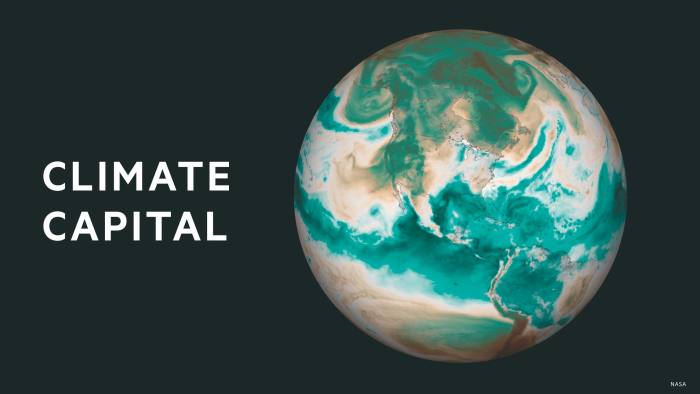
India is drawing support for its proposal for countries to agree to the phase down of all fossil fuels at the UN climate summit in Egypt, rather than the narrower deal to phase down coal that was struck at the last summit.
The country that derives the majority of its power supply from coal was blamed along with China for weakening the final agreement about ending coal use at last year’s Glasgow summit.
India’s attempt to take the focus away from coal at COP27 has gained traction unexpectedly. The EU’s green chief Frans Timmermans on Tuesday said the bloc was supportive of “any call to phase down all fossil fuels”.
A broad commitment to phase-down all fossil fuels has not previously featured in a final COP agreement. But the shift away from coal, oil and gas use are crucial to limiting greenhouse gas emissions and curbing climate change, scientists conclude.
Timmermans said that provided the commitment to phase-down coal was not undermined as a result, the Indian proposal would be acceptable.
The risk could be that an agreement about all fossil fuels could result in the slowdown in the phase-down of coal-powered plants, if it was brought into line with the timeline for phasing down oil and gas.
Any agreement “should not divert our attention and our efforts to phase down coal”, Timmermans said.
Another flashpoint surrounds any reference to limit global warming to 1.5C, that dates back to the Paris Agreement. Extreme weather events are expected to become more frequent and severe with every fraction of a degree of warming. Temperatures have already risen at least 1.1C in the industrial era.
Meeting the 1.5C goal requires tougher and faster action than limiting warming to 2C, the less ambitious Paris Agreement goal.
US climate envoy John Kerry said at a weekend briefing that “very few” parties had raised the issue, and he did not believe the COP27 Egyptian presidency would want its legacy to be associated with the removal of the global warming goal.
The Egyptian team met with countries to discuss their priorities and concerns on Tuesday afternoon, ahead of penning a draft final text.
COP27 ambassador Wael Aboulmagd said the presidency would “do everything in its power of course to encourage parties to agree”.
The Indian proposal about the inclusion of all fossil fuels in the Egyptian agreement builds on discussions in Glasgow last year. At COP26, India was “very consistent in the negotiating rooms” in asking for the pledge to include all fossil fuels, not just coal, said David Waskow, director of international climate action at WRI.
“There were some folks who thought at the beginning [of COP] this was a negotiating gambit” from the Indian delegation, he added. However, there was now growing support for it, he said.
Any blanket policy to end the use of all fossil fuels is likely to encounter fierce resistance from countries dependent on oil and gas exports, however.
Saudi Arabia’s minister of state for foreign affairs, Adel al-Jubeir, said in an interview that tackling climate change was “not about fossil fuels” production but about reducing emissions across sectors. Asked whether Riyadh believed a phase down or phase out of oil and gas would be necessary to limit global warming, he said “not even phase down”.
India’s proposal could culminate in a “showdown” between Opec countries and others, said one energy analyst at COP27. Getting such a commitment into a final COP agreement would be a “long shot”, they said.
The United Arab Emirates, an Opec member, is hosting next year’s COP28 summit.
Climate experts have also flagged concerns about the influence of the oil and gas industry and its lobbyists at COP27. The Gas Exporting Countries Forum and Opec held a meeting in Sharm el-Sheikh on Monday to discuss “the importance that oil and gas will continue to play” in global energy. The groups will deliver formal statements to the conference on Wednesday.
Climate Capital

Where climate change meets business, markets and politics. Explore the FT’s coverage here.
Are you curious about the FT’s environmental sustainability commitments? Find out more about our science-based targets here